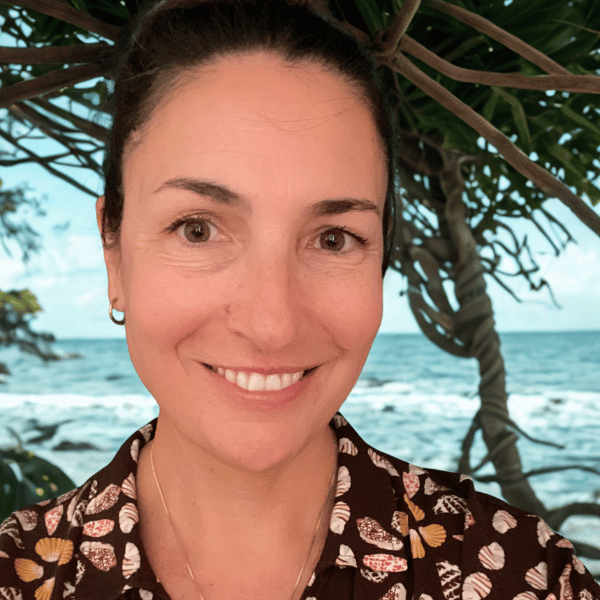
Group Therapy for Addiction Treatment in Maui, Hawaii
Group therapy plays a crucial role in supporting long-term recovery by addressing both mental health issues and substance abuse. This can help individuals build a strong foundation of sobriety. By participating in group sessions, clients learn to navigate the challenges of recovery and develop strategies for maintaining their progress.
What is Group Therapy?
Group therapy is a therapeutic approach where individuals struggling with similar issues come together in a structured setting to support one another, share experiences, and work towards recovery. This form of therapy allows participants to connect with others who are facing comparable challenges, fostering a sense of community and understanding.
Group members play a crucial role in the therapeutic process by contributing to learning, support, feedback, and the overall therapeutic experience, which helps foster connection, trust, and personal growth among participants. In the context of addiction recovery, group therapy provides a collaborative environment where individuals can explore their struggles with substance use and work on developing effective coping strategies. Group therapy can also address mental health issues alongside addiction, promoting a holistic approach to recovery.
At Mana Recovery Center, located in the serene setting of Maui, Hawaii, group therapy plays a vital role in the comprehensive treatment approach. The picturesque surroundings of Maui offer a calming backdrop that enhances the therapeutic experience, helping clients to focus on their recovery journey in a supportive and nurturing environment.
How Can Group Therapy Help Address Substance Use Disorders?
Group therapy is a powerful tool in addressing substance use disorders and is a key component of substance abuse treatment for several reasons. One of its primary advantages is the opportunity it provides for individuals to share their experiences and gain insights from others who have faced similar challenges. This mutual exchange can help clients feel less isolated and more understood, which is crucial in the recovery process.
Group therapy allows participants to receive feedback and support from both their peers and facilitators. This feedback can be instrumental in helping individuals identify and address patterns of behavior that contribute to their addiction. By learning from others’ experiences and perspectives, clients can gain valuable insights into their own behavior and develop new strategies for managing their substance use. Support groups play a vital role in providing a safe environment for sharing and learning, fostering trust and accountability among peers.
In a group setting, individuals also have the chance to practice interpersonal skills, such as communication, empathy, and conflict resolution. These skills are essential for building healthy relationships and maintaining a sober lifestyle. Group therapy encourages participants to engage with others in a constructive manner, which can translate into improved relationships inside and outside of the therapy group.
Benefits of Group Therapy
Group therapy offers numerous benefits that can significantly enhance the addiction recovery process. Some of the key benefits include:
1. Direct Help with Identifying Patterns
2. Practice in Healing Interpersonal Problems
3. Support and Understanding
4. Diverse Perspectives
5. Direct Education About Addiction
6. Accountability
7. Skill Development
8. Cost-Effectiveness
9. Enhanced Social Connections
The Role of Group Therapy in Long-Term Addiction Recovery
The shared experiences and collective wisdom of a therapy group can provide ongoing support and encouragement, which can be instrumental in preventing relapse and sustaining a healthy, sober lifestyle over time.
What to Expect During Group Therapy Sessions
Understanding what to expect during group therapy sessions can help individuals feel more comfortable and prepared as they begin their recovery journey. At Mana Recovery Center, group therapy sessions are structured to provide a supportive and open environment where participants can share their experiences, discuss their challenges, and receive feedback. Each session typically includes guided discussions, interactive activities, and opportunities for personal reflection. Knowing what to expect can ease any initial anxiety and help clients engage more fully in the therapeutic process.
Integrating Group Therapy with Other Treatment Approaches
Group therapy is often just one component of a comprehensive addiction treatment plan. At Mana Recovery Center, group therapy is integrated with other therapeutic approaches to provide a well-rounded recovery experience. This integration ensures that clients receive a holistic treatment plan that addresses various aspects of their addiction.
Combining group therapy with individual therapy, medical support, and other treatment modalities allows for a more complete and personalized approach to recovery. A treatment provider plays a crucial role in integrating these various therapeutic approaches to ensure the best outcomes for clients.
Family Involvement in Group Therapy
Family involvement can be an important aspect of group therapy at Mana Recovery Center. Including family members in the therapeutic process can enhance the support system for individuals in recovery and address relational dynamics that may impact their recovery journey. Family participation in group sessions or separate family therapy sessions can help improve communication, strengthen relationships, and build a more supportive home environment.

How Group Therapy Complements Individual Therapy
Group therapy complements individual therapy by offering a different but equally valuable form of support. While individual therapy focuses on personal issues and goals with a therapist, group therapy provides a broader perspective through shared experiences and peer interactions. This combination allows individuals to benefit from both personalized attention and the collective wisdom of the group, enhancing their overall recovery process.
Tips for Making the Most of Group Therapy
To maximize the benefits of group therapy, participants can adopt certain strategies to engage fully in the process. It’s important to be open and honest, actively listen to others, participate in discussions, and apply insights from the sessions to daily life. By approaching group therapy with a positive and proactive attitude, individuals can enhance their recovery experience and build stronger connections with their peers.
Mana Recovery Center Offers Group Therapy for Addiction Treatment in Hawaii
At Mana Recovery Center in Maui, Hawaii, group therapy is an integral component of the comprehensive addiction treatment program. The center’s serene location on the beautiful island of Maui provides an ideal setting for healing and recovery. The tranquil environment supports the therapeutic process, allowing clients to focus on their recovery while surrounded by natural beauty.
Mana Recovery Center’s group therapy sessions are designed to foster a supportive and collaborative atmosphere where clients can share their experiences, learn from others, and work towards their recovery goals. The center’s dedicated team of professionals facilitates these sessions, ensuring that each group is guided effectively and that participants receive the support they need to make meaningful progress.
If you or a loved one is seeking help for addiction, consider the valuable support and resources offered through group therapy at Mana Recovery Center. The combination of professional guidance and the natural beauty of Maui creates an environment conducive to healing and transformation, setting the stage for a successful and fulfilling recovery journey. Contact us today to begin your journey.

